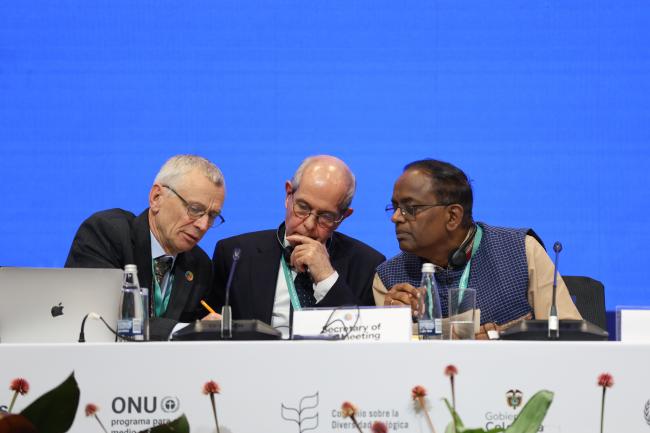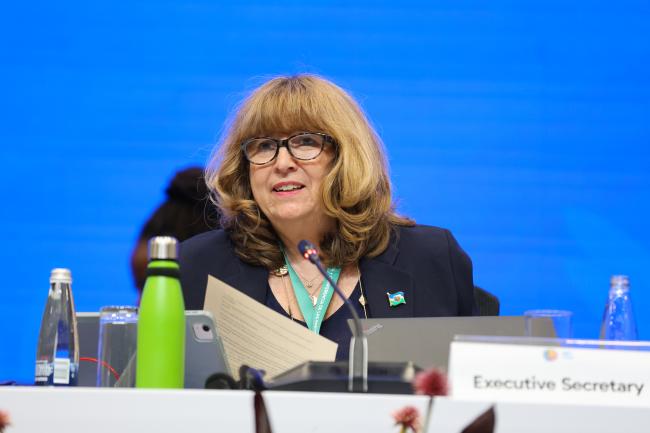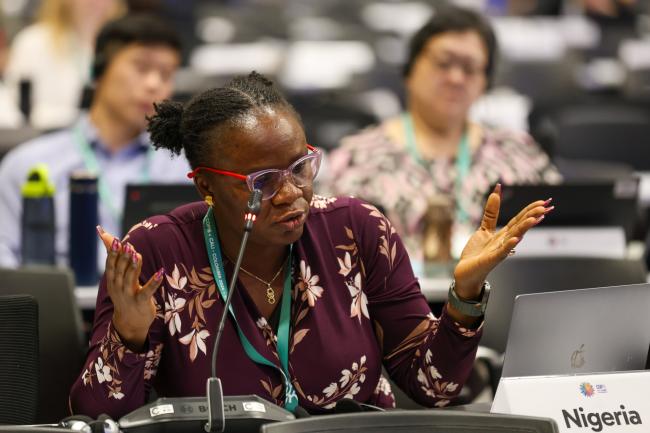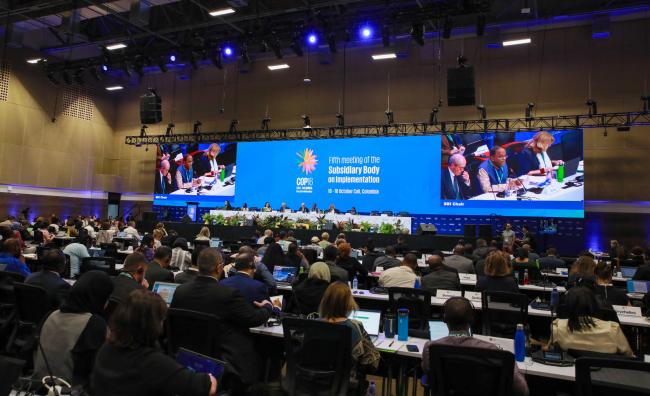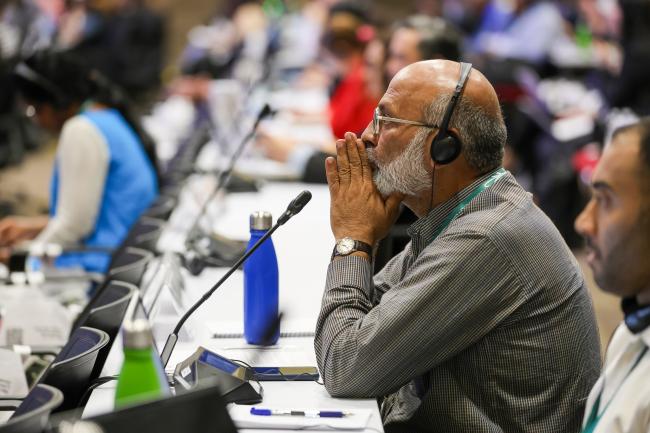Holding efficient deliberations while accommodating parties’ priorities is a constant challenge in intergovernmental negotiations. On the last day of the fifth meeting of the Subsidiary Body on Implementation (SBI 5), questions of prioritization and time management took center stage.
Want to dig deeper into today's talks? Read the full Earth Negotiations Bulletin daily report.
Connectivity issues slowed progress in the morning during consideration of a draft recommendation on reviewing implementation in national target setting and updating national biodiversity strategies and action plans (NBSAPs). Participants celebrated the announcement that 100 parties have already submitted national targets aligned with the Kunming-Montreal Global Biodiversity Framework (GBF), along with 30 updated NBSAPs, with more on the way. Yet unagreed text regarding the support provided—or not—by the Global Environment Facility (GEF) led to drawn-out negotiations, with parties striving to reach a compromise and submit clean text to the 16th meeting of the Conference of the Parties (COP 16) next week.
Many delegates expressed concern regarding the amount of time spent on details of the preambular text, rather than focusing on more substantive issues within operative paragraphs. In the corridors, some observers commented that such lengthy debates on seemingly innocuous provisions reflect principled differences over the role of the GEF in the implementation of the Convention. With COP 16 around the corner, issues regarding resource mobilization and the financial mechanism of the Convention are expected to be in the spotlight. The recommendation was approved with these matters remaining outstanding.
Delegates were similarly unable to agree whether the recommendation should focus on progress on national target-setting and updating of NBSAPs or should also include provisions on their implementation. Alternatives were forwarded to COP 16 in brackets.
Deliberations on a draft recommendation on the pilot forum for voluntary country review of implementation gave rise to a debate on the added value of the forum as part of SBI. While emphasizing the value of intersessional regional and subregional dialogues, some delegates noted concerns regarding the forum’s format, budgetary implications, and use of scarce negotiating time. As the meeting went overtime and interpretation was lost, the recommendation was adopted with these matters remaining outstanding. Following adoption of the meeting’s report, SBI 5 concluded its deliberations at 7:21 pm.
As delegates gear up for COP 16 and the associated Protocol meetings, a complex and interlinked agenda lies ahead. Alongside resource mobilization and the financial mechanism, several critical items feature high on the agenda. Extensive deliberations are expected on the multilateral mechanism on benefit-sharing from use of digital sequence information (DSI) on genetic resources and the new programme of work on Article 8(j) of the Convention regarding Indigenous Peoples and local communities and traditional knowledge, along with the GBF’s monitoring framework, the mechanism to strengthen technical and scientific cooperation, and several ecosystem-related and cross-cutting items. Resolution of technical problems, rules of engagement that promote good-faith deliberations, and good time management are now of crucial importance.
To receive free coverage of global environmental events delivered to your inbox, subscribe to the ENB Update newsletter.
All ENB photos are free to use with attribution. For the 2024 UN Biodiversity Conference, please use: Photo by IISD/ENB | Mike Muzurakis

